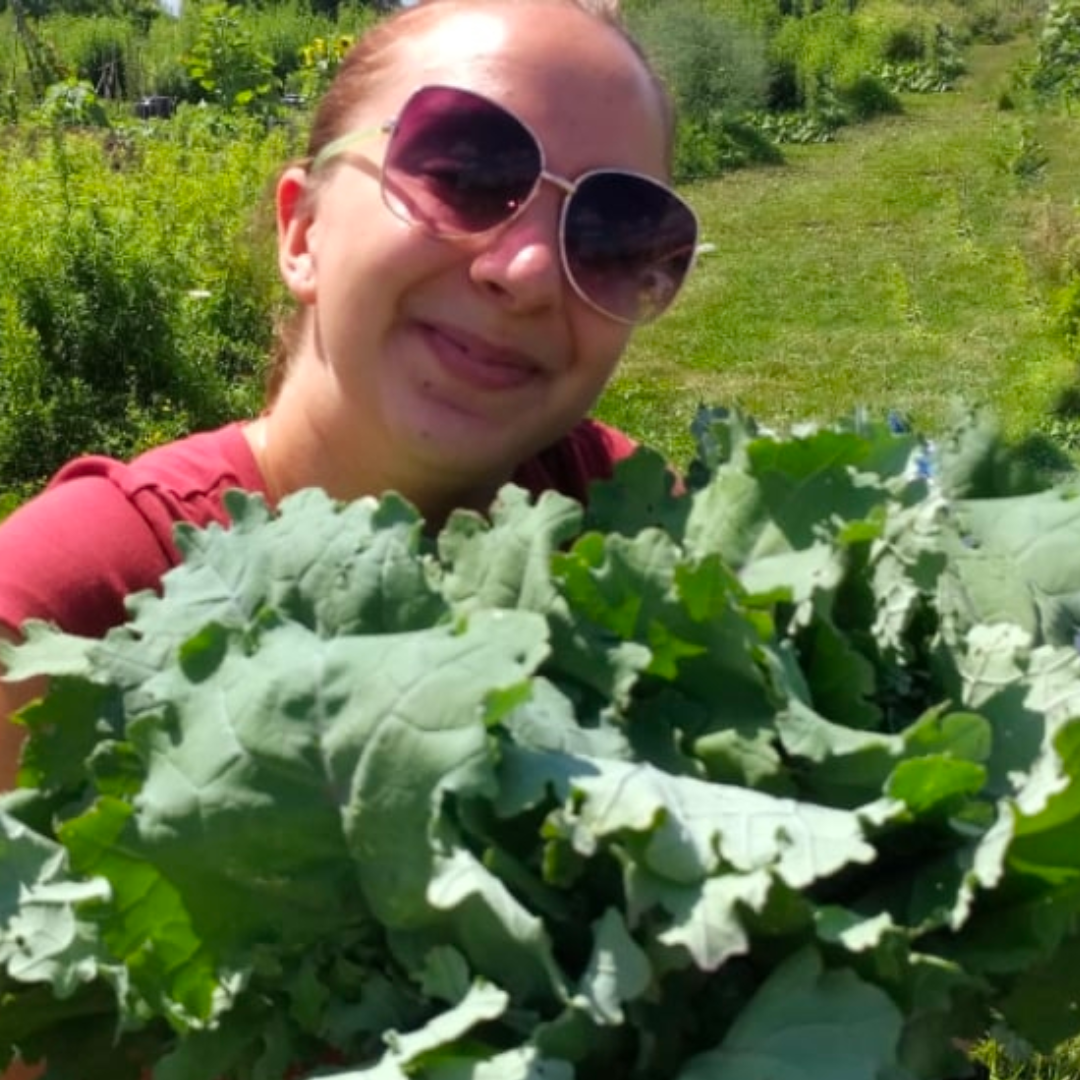Estimated reading time: 2 minutes
Today's students learn best through experiential learning. Field trips give them the opportunity to touch, feel, and hear what they're learning about in the classroom as well as experience new cultures and practices outside of their own world. Upper-year undergraduate students taking GEOG 460 visited four local community projects to learn about food sustainability in Waterloo Region.

At the Wisahkotewinowak Indigenous Garden Collective, they learned about building land-based relationships through gardening. Along with partaking in garden activities, such as shucking and trying to braid corn and weeding the gardens, they learned how access to Land is key in land-based relationships and reconciliation.
Photo of Christy Argueta braiding corn.

Their second trip was to a fertile ground farm to learn more about permaculture. The field trip taught each student about the importance of organic farming, the local food system, and operations surrounding growing, harvesting, and selling their crops
Photo
of
GEOG
460
class
in
a
sharing
circle
with
tour
leaders
Angie
Koch
and
Nikola
Barsoum.

At the Community Fridge KW they talked to founder Kamil Ahmed about the process and benefits of the community fridge. They learned that all food in the fridge is donated by neighbours within the area, making this project beneficial to everyone in the community. The field trip sparked discussions and awareness about food insecurity in Waterloo Region.
Photo of Kamil Ahmed in front of the community fridge, in front of Kitchener Market.

The final fieldtrip of the term was to the Cambridge Food Bank, to learn about food as a human right and how local communities are dealing with food insecurity. Despite many challenges, the Cambridge Food Bank still prioritizes strengthening local food networks and fostering nutrition education
Photo curtesy of the Cambridge Food Bank.
The opportunity to merge the classroom into the community helped the students build on what they learned through real-world experiences. Read more about these stories and more on the Our Food Future website.
GEOG 460 is taught by Dr. Steffanie Scott, professor in the School of Geography and Environmental Management and co-chair of the Food System Roundtable of Waterloo Region.